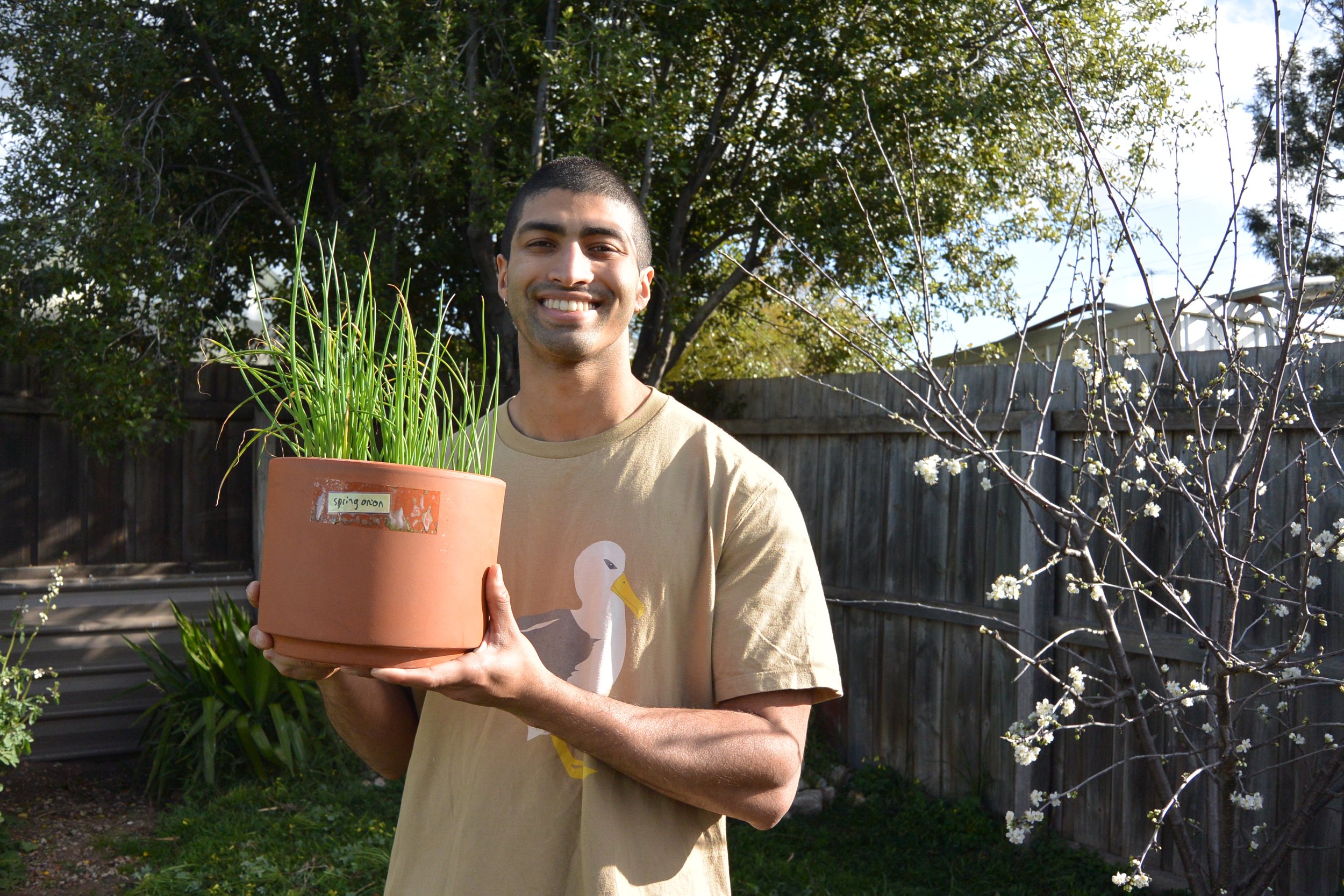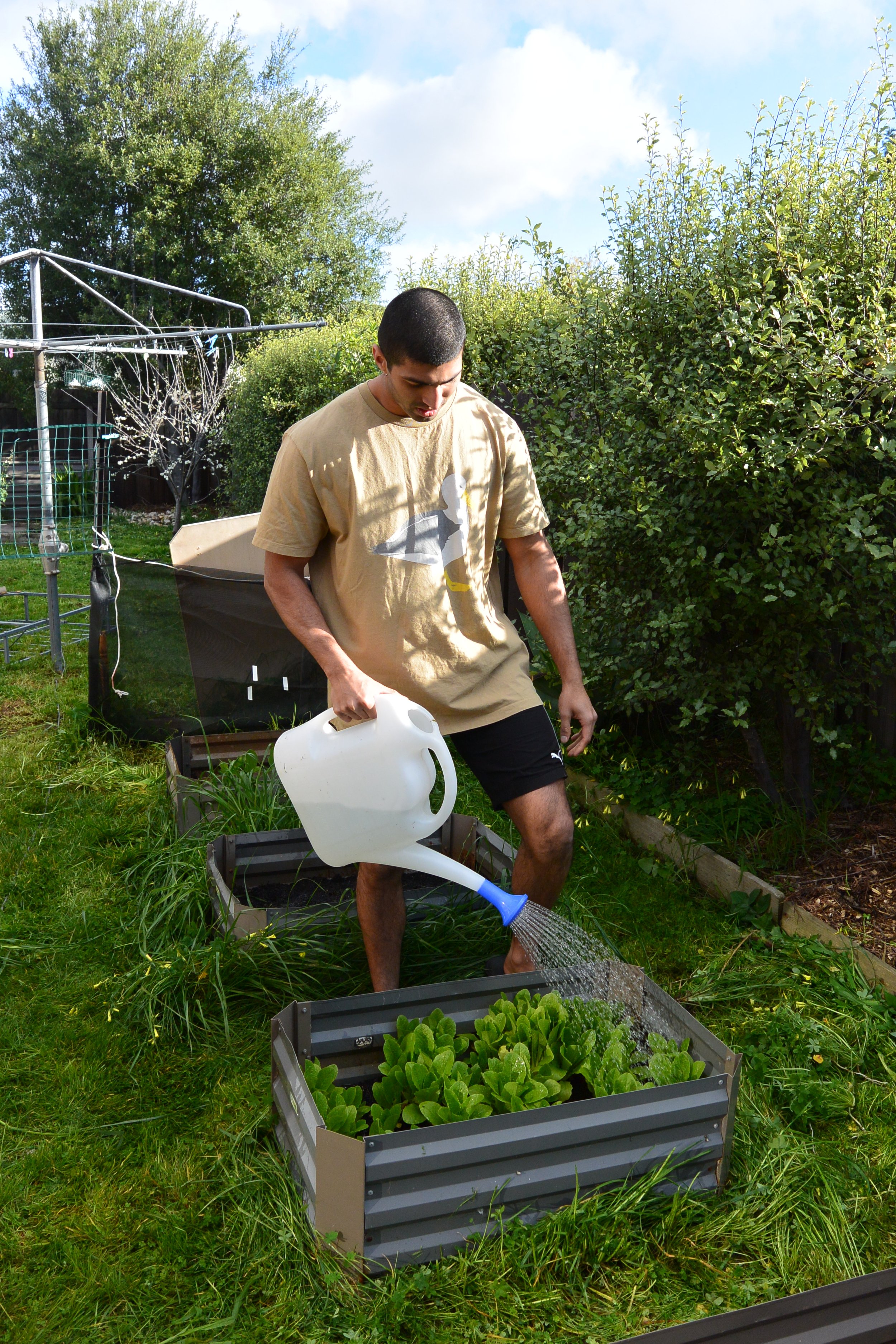Unearthing the power of nature: How green spaces have infiltrated our homes, our minds and our lives
In recent years, scientists and researchers have continued to grow in their knowledge of the powerful effects of nature and the positive impacts it has on mental health and wellbeing. Since leaving the confines of our homes post pandemic, one could almost be forgiven now, for gravitating towards wide, open spaces and the great outdoors–to an environment surrounded by natural wonders and defined by its raw, untouched beauty.
During the last few years, limited opportunities to wander beyond our 5km radius saw for the first and perhaps only time in our generation’s lifetime, our innate human desire to explore and travel the world restricted. With these limits to our movement coupled with severe social isolation, is it any wonder that our mental health and wellbeing has since suffered?
Though we are now able to travel, see our friends and start to feel like everything is going back to normal, that defininitive moment in time where we could see the outside but not fully experience it, uncovered a very stark realisation that many knew but did not understand before it was questioned. At its very core, being outdoors and surrounded by nature of any kind is good for us, and we need it more than we thought in our lives. Now that we understand this, we can endeavour in every which way possible to incorporate it back into our lifestyles.
We uncover how everyday Australians have reconnected to nature since the pandemic, and explore the benefits that they have experienced in their day to day.
Rithvik: Veterinarian and vegetable grower.
Rithvik started growing vegetables after the pandemic, but his affinity towards gardening started long before. As a child Rith loved being outside, and this love remained well into adulthood.
“I used to garden and grow vegetables when I was young, and as a kid, I liked doing stuff outdoors. For me, growing things was always fun,” he explains.
Though it might seem it now, growing vegetables was never an attempt to reconnect with nature after the pandemic. In fact, Rith did little gardening during the peak of Melbourne’s lockdowns. But like many who experienced the effects of social isolation during the pandemic’s peak, gardening did ease the burden of one thing: loneliness.
“I moved out of home, and coming to Geelong was quite isolating in that I moved to a place where I didn’t really know anyone … I was learning how to occupy time and I’m the person that I get in my head a lot when I am just doing nothing. So, finding something like gardening I found was really helpful to get myself out of my head.”
The irony of loneliness is that it is more common and prevalent than one would think. In one survey taken after the onset of the pandemic, over half (54 per cent) of Australian survey participants reported that they felt more lonely since the beginning of the pandemic. More specifically, young Australian adults between the ages of 18-25 reported the highest levels of loneliness compared to other age groups. The majority of Australians will feel loneliness in their lifetime, and Rith was no exception.
“When I first came to Geelong I struggled with not having people around me,” he says. “So I thought, instead of just spending my time playing heaps of video games, how can I fill my life with more productive things? Gardening became one of those things.”
The need to nurture his garden provided a consistent routine. When required, Rith would water his plants after work, and make a point to fertilise and check up on his garden during his RDOs.
“I like the routine of it [gardening]. I also really like how it’s simple. It’s a hobby that you don't need to think very much about. You can just start — and then it becomes a habit. I like the consistency and seeing the results in the end.”
Rith’s garden, full of different varieties of vegetables at various stages — some in seedlings, some as sprouts, some fully grown — is hindered by only one thing. A giant, chocolate brown dog by the name of Cooper who has broken into the patch at least five times.
Despite Cooper’s damage, what Rith really loves most about gardening is simply that it’s fun. In his fridge lies delicious pickles produced from his last radish harvest. He finds no need to buy Aldi spinach bags as he has his own infinite source next to the pak choy. And as for his next gardening feat? Fresh chillies and herbs.
“It's fun. It only needs a couple of minutes a day of doing things consistently and it's a really cool feeling when you get something that you made yourself,” he says. “You pull it out of the ground and it’s like, wow, I did this, man. It’s a real accomplishment.”
Annie: Graduate and indoor plant lover.
“Sometimes you just got to leave it the f*** alone.”
That’s one of Annie’s best pieces of advice for beginner plant parents.
You’d find that Annie has come a long way as someone who thought she was not capable of looking after living things.
“When you actually put your mind to something and you decide that you want to do something, and you spend that time learning about it and talking to people who know about it, you can get there.”
Nowadays, an avid plant lover, her plant journey had only recently started over the course of the pandemic.
“In 2020 it was mentally straining with COVID and lockdowns. It was really intense. We all know how lockdown was… I felt like I was floundering without any kind of purpose and I wanted a project, I wanted something to do. I felt like maybe looking after a living thing would help.”
And help it did. Once restrictions were lifted Annie found herself at Ikea’s plant section. When walking through the aisles she realised that buying a plant could give an opportunity to look after something, even if it was just for a minute a day.
“I bought a little Monstera and named her Matilda. She’s one of the only plants that have a name. When I bought her she was I’d say maybe 10 to 15 centimeters tall. She had four leaves and she was tiny.”
On that fateful day Matilda the Monstera became Annie’s very first and most beloved plant. Annie’s pride for her (now collection of) plants shines through in her names for them. Matilda has now doubled in size, with a good 20 leaves growing from her stem.
Though Annie thought that she had just bought a plant, what she didn’t realise at the time was how much more that little plant would give. During the pandemic Matilda gave Annie another thing (aside from her own health) to look after and nurture.
“I think it’s good to focus your attention on something else and look after something else and keep gauging on how this other living thing is doing. You find this purpose that’s other than yourself,” she explains.
“As I have more time on my hands I’ve been getting into it a lot more. It’s been a really positive way to engage myself.”
Aside from the mental gratification of nurturing a plant and seeing it grow, looking after indoor plants gave Annie physical and social benefits as well.
As a natural daylight aficionado Anvita’s plants became another reason for opening the blinds first thing every morning.
“Plants always need some light and I love natural light. So having plants made it more of an impetus to bring that sunlight in.”
Exposure to sunlight is known to be the best source of vitamin D for the body, which in appropriate levels (aside from maintaining good health) is important in keeping strong bones and muscles. Waking up to daylight is also documented to stimulate your body in releasing serotonin, which is associated with boosting mood and providing a calm and positive mental state.
But for Annie perhaps one of the most unexpected benefits of having indoor plants was the close-knit community of friends she has gained from them.
“So many people I know are into plants now. It’s become such a fun topic of conversation,” she says.
“I am planting seeds with friends, and I also have friends who help me propagate plants and they’ll give me cuttings which I can use to grow my own plant.”
One of Annie’s Swiss cheese plants was propagated from a cutting that a close friend had given her. Another two friends also received cuttings from the same plant. For Annie, her Swiss Cheese plant is not just aesthetic house decor but rather a small reminder of her enduring friendships.
“It’s a really fun social thing. We are kind of sharing this little baby plant around and are growing by ourselves but it’s also such a shared thing. I think it’s really sweet.”
Annie has plans to grow bigger things in the future, but for now there’s contentment in taking care of her indoor plants. Having helped elevate her mental, physical and social health, Annie’s plants have also made her space feel homely and alive.
“If there’s one thing that COVID taught me, it was that it’s so important that our homes are comfortable and welcoming, whatever that means for us. And I know it’s a privilege to be able to say that, but having indoor plants definitely helped my mental health, in helping it turn into a space that I felt I actually wanted to be in.”
“It’s really important for my home to be one that I want to come home to and relax. And part of that for me is that plants make it feel homelier. There’s nothing nicer than having that scenery around you.”
Leonie: Florist-in-training and home gardener.
With a professional background in the disability sector, Leonie had worked in community service for 15 years before switching careers. Having a passion for interior design and gardening, she decided to take the leap and work towards re-educating herself in a field more creatively fulfilling.
“Although I enjoy working within the community service sector, it was mentally draining at times… After 15 years I felt I needed to do something completely different, so with a little brainstorming, I decided to study floristry as I love gardening and flowers.”
Leonie's personal connection to nature has long been ever present. Aside from studying floristry, Leonie’s home is abundantly surrounded by nature and located on a semi-rural acre block of land. One of her prized accomplishments is her garden which features garden beds with box hedge borders, roses, and other cottage variety plants, which she designed and planted from scratch.
“It was a huge undertaking. It took at least eight to ten years for it to look established,” she explains.
When starting, the soil consisted of very hard clay in some parts which made it impossible for some plants to grow. Trial and error especially in determining which plants were best for the environment was a common and costly occurrence. Two silver birch trees which she had initially planted both died due to the clay soil.
“Gardening comes with its challenges at times. A lot of blood, sweat, tears and money went into this project,” Leonie reflects.
Though some areas proved to be more difficult than others, the positives outweigh the hurdles. One of her favorite things about working on the garden is the feeling of accomplishment after a long day of work. Maintaining a garden space is not only a labor of love but also a commitment to intense, physical labor.
“I love sitting back and admiring all the work that I have put into it. It never disappoints…. If I'm feeling a little down, I will go into the garden and pull weeds or do general maintenance,” she says
With case studies and a growing body of literature showing how being (safely) outside in nature can greater improve general health by lowering stress hormone levels, and better psychological wellbeing through increasing self-esteem and reducing anxiety, it's understandable how dipping your hand in soil at home can be used as a great way to induce a healthy mental space and arouse positive and beneficial emotions.
“There is something about being surrounded by green spaces that has a calming effect on me,” Leonie says.
But it goes beyond that, impacting social interactions and personal relationships as well.
“It’s a great social connector, I follow groups on social media and it’s interesting to see and connect with other people’s gardens from all over Australia and the world.”
Like many others, COVID proved to be a challenging time. Through these moments of uncertainty, Leonie reflects on the benefits of having a garden and being able to share the joy with her friends and family.
“I was lucky to have my garden to escape in, it gave me something to focus on and put my time and energy into. This garden has become a very special place for me, it’s a place I can find solitude in, and I can't imagine not having a garden of some sort.”
Leonie encourages everyone to try and incorporate a little green in their life, whether it be large or small.
“It’s a known fact that people function better when surrounded by green space,” she says.
And if you’re still on the fence, Leonie has this piece of advice.
““For people who have never considered gardening or had an interest in plants, do yourself a favour and explore the green space around you, you won’t be disappointed.”
WORDS: NATASHA AULIA
PHOTOGRAPHY: RITHVIK, ANNIE AND LEONIE
PHOTOGRAPHY: RITHVIK, ANNIE AND LEONIE









